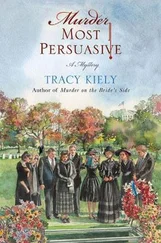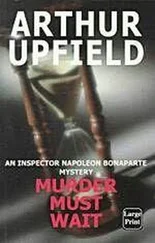“It wouldn’t do any good. Where’s Janvier?”
“In the old woman’s room. The men of the Identité Judiciaire have already got to work. The first thing they found were some child’s fingerprints on the handle of the door. Come on—jump into a taxi and come round.”
“No. In any case, there’s no one to take my place.”
That was true enough up to a point. All the same, if he’d really got to work on the telephone he’d have found someone all right. The truth was he didn’t want to go and didn’t think it would do any good if he did.
“Listen, Gonesse, I’ve got to find that boy, and I can do it better from here than anywhere. You understand, don’t you? Tell Janvier I’m staying here. And tell him old Madame Fayet had plenty of money, probably hidden away somewhere in the room.”
A little feverish, Lecœur stuck his plug into one socket after another, calling up the various police stations of the Eighth Arrondissement.
“Keep a lookout for a boy of ten, rather poorly dressed. Keep all telephone pillars under observation.”
His two fellow-watchkeepers looked at him with curiosity.
“Do you think it was the boy who did the job?”
Lecœur didn’t bother to answer. The next moment he was through to the teleprinter room, where they also dealt with radio messages.
“Justin? Oh, you’re on, are you? Here’s something special. Will you send out a call to all cars on patrol anywhere near the Etoile to keep a lookout for—”
Once again the description of the boy, Francois Lecœur.
“No. I’ve no idea in which direction he’ll be making. All I can tell you is that he seems to keep well clear of police stations, and as far as possible from any place where there’s likely to be anyone on traffic duty.”
He knew his brother’s flat in the Rue Vasco de Gama. Two rather dark rooms and a tiny kitchen. The boy slept there alone while his father was at work. From the windows you could see the back of the house in the Rue Michat, across a courtyard generally hung with washing. On some of the windowsills were pots of geraniums, and through the windows, many of which were uncurtained, you could catch glimpses of a miscellaneous assortment of humanity.
As a matter of fact, there, too, the windowpanes ought to be covered with frost. He stored that idea up in a corner of his mind. It might be important.
“You think it’s a boy who’s been smashing the alarm glasses?”
“It was a child’s handkerchief they found,” said Lecœur curtly. He didn’t want to be drawn into a discussion. He sat mutely at the switchboard, wondering what to do next.
In the Rue Michat, things seemed to be moving fast. The next time he got through it was to learn that a doctor was there as well as an examining magistrate who had most likely been dragged from his bed.
What help could Lecœur have given them? But if he wasn’t there, he could see the place almost as clearly as those that were, the dismal houses and the grimy viaduct of the Metro which cut right across the landscape.
Nothing but poor people in that neighborhood. The younger generation’s one hope was to escape from it. The middle-aged already doubted whether they ever would, while the old ones had already accepted their fate and tried to make the best of it.
He rang Javel once again.
“Is Gonesse still there?”
“He’s writing up his report. Shall I call him?”
“Yes, please. Hallo, Gonesse, Lecœur speaking. Sorry to bother you, but did you go up to my brother’s flat? Had the boy’s bed been slept in? It had? Good. That makes it look a bit better. Another thing: were there any parcels there? Yes, parcels, Christmas presents. What? A small square radio. Hadn’t been unpacked. Naturally. Anything else? A chicken, a boudin , a Saint-Honoré. I suppose Janvier’s not with you? Still on the spot. Right. Has he rung-up the P. J. ? Good.”
He was surprised to see it was already half past nine. It was no use now expecting anything from the neighborhood of the Etoile. If the boy had gone on walking as he had been earlier, he could be pretty well anywhere by this time.
“Hallo! Police Judiciaire? Is Inspector Saillard there?”
He was another whom the murder had dragged from his fireside. How many people were there whose Christmas was going to be spoiled by it?
“Excuse my troubling you, Monsieur le Commissaire. It’s about that young boy, Francois Lecœur.”
“Do you know anything? Is he a relation of yours?”
“He’s my brother’s son. And it looks as if he may well be the person who’s been smashing the glasses of the telephone pillars. Seven of them. I don’t know whether they’ve had time to tell you about that. What I wanted to ask was whether I might put out a general call?”
“Could you nip over to see me?”
“There’s no one here to take my place.”
“Right. I’ll come over myself. Meanwhile you can send out the call.”
Lecœur kept calm, though his hand shook slightly as he plugged in once again to the room above.
“Justin? Lecœur again. Appel General. Yes. It’s the same boy. Francois Lecœur. Ten and a half, rather tall for his age, thin. I don’t know what he’s wearing, probably a khaki jumper made from American battle-dress. No, no cap. He’s always bare-headed, with plenty of hair flopping over his forehead. Perhaps it would be as well to send out a description of his father, too. That’s not so easy. You know me, don’t you? Well, Olivier Lecœur is rather like a paler version of me. He has a timid look about him and physically he’s not robust. The sort that’s never in the middle of the pavement but always dodging out of other people’s way. He walks a bit queerly, owing to a wound he got in the first war. No, I haven’t the least idea where they might be going, only I don’t think they’re together. To my mind, the boy is probably in danger. I can’t explain why—it would take too long. Get the descriptions out as quickly as possible, will you? And let me know if there’s any response.”
By the time Lecœur had finished telephoning, Inspector Saillard was there, having only had to come round the corner from the Quai des Orfèvres. He was an imposing figure of a man, particularly in his bulky overcoat. With a comprehensive wave of the hand, he greeted the three men on watch, then, seizing a chair as though it were a wisp of straw, he swung it round towards him and sat down heavily. “The boy?” he inquired, looking keenly at Lecœur.
“I can’t understand why he’s stopped calling us up.”
“Calling us up?”
“Attracting our attention, anyway.”
“But why should he attract our attention and then not say anything?”
“Supposing he was followed. Or was following someone.”
“I see what you mean. Look here, Lecœur, is your brother in financial straits?”
“He’s a poor man, yes.”
“Is that all?”
“He lost his job three months ago.”
“What job?”
“He was linotype operator at La Presse in the Rue du Croissant. He was on the night shift. He always did night work. Runs in the family.”
“How did he come to lose his job?”
“I suppose he fell out with somebody.”
“Is that a failing of his?”
They were interrupted by an incoming call from the Eighteenth to say that a boy selling branches of holly had been picked up in the Rue Lepic. It turned out, however, to be a little Pole who couldn’t speak any French.
“You were asking if my brother was in the habit of quarreling with people. I hardly know what to answer. He was never strong. Pretty well all his childhood he was ill on and off. He hardly ever went to school. But he read a great deal alone in his room.”
“Is he married?”
Читать дальше












